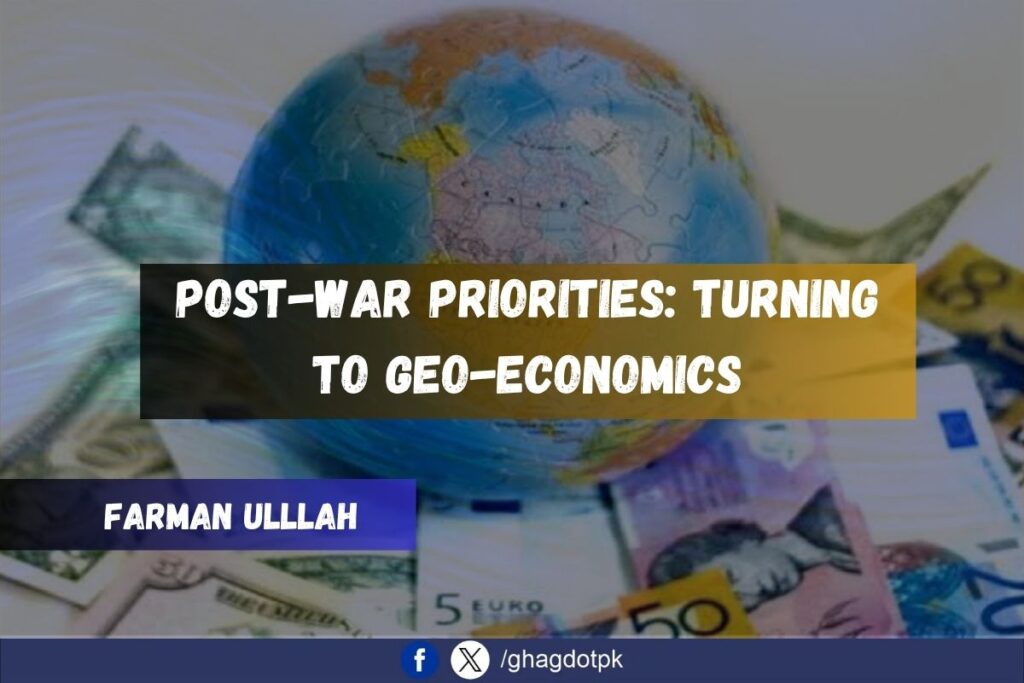By Farman Ullah
The recent conflict between Pakistan and India has drawn global attention, with both countries’ nuclear-armed status and advanced military capabilities raising serious concerns. With a combined population of over 1.5 billion people, accounting for 20.8% of the world’s population, it’s crucial to find a peaceful solution to their longstanding disputes.
Despite being part of regional organizations like the Shanghai Cooperation Organization (SCO) and the South Asian Association for Regional Cooperation (SAARC), Pakistan and India have struggled to resolve their issues. The United Nations and the Commonwealth have also failed to effectively mediate, as their efforts have been limited to encouraging dialogue without applying pressure on India to engage in meaningful conflict resolution. The failure of diplomatic efforts highlights the need for a new approach. Pakistan and India need to prioritize dialogue and cooperation, rather than relying solely on military strength. The international community must also play a more active role in mediating between the two nations, rather than simply encouraging dialogue.
In high-stakes conflicts like this, countries often prioritize their national interests over moral or ideological considerations. For Pakistan, it’s essential to complement its military strength with smart diplomacy, leveraging multilateralism, regional cooperation, and international alliances to safeguard its national interests. Smart diplomacy involves using a combination of diplomatic tools, including negotiation, mediation, and economic cooperation, to achieve Pakistan’s goals. This approach requires a deep understanding of the complexities of the conflict and the interests of all parties involved.
Pakistan should focus on geo-economics, particularly given its agro-based economy, where agriculture plays a vital role in economic growth, employment, and food security. The country’s agricultural sector is heavily dependent on water resources, making the Indus Water Treaty a critical issue that needs to be addressed. The Indus Water Treaty, signed in 1960, has been a cornerstone of Pakistan-India relations. However, India’s recent threat to use water as a weapon has raised concerns about the treaty’s viability. China, as Pakistan’s trusted neighbor and ally, can play a crucial role in urging India to negotiate and discouraging the use of water as leverage.
China’s role in mediating between Pakistan and India can be vital. As a major economic power and a key player in the region, China has a vested interest in promoting peace and stability in South Asia. China’s involvement can help to build trust and confidence between Pakistan and India, creating a more favorable environment for dialogue and cooperation.
The conflict between Pakistan and India highlights the need for effective diplomacy and multilateralism. Pakistan’s focus on geo-economics, particularly in the agricultural sector, is crucial for its economic growth and stability. The Indus Water Treaty requires immediate attention, and China’s role in mediating between Pakistan and India can be vital. These key areas need to be addressed to ensure a peaceful resolution and sustainable economic development.
Moving forward, Pakistan should prioritize a geo-economic strategy that enhances agricultural productivity, ensures water security, and fosters economic cooperation. By focusing on economic development and cooperation, Pakistan can build a stronger, more stable future. This approach will not only help in resolving conflicts but also in creating opportunities for growth and prosperity.
Pakistan’s economic development and cooperation with other countries can play a critical role in promoting peace and stability in the region. By leveraging its economic potential, Pakistan can build stronger relationships with its neighbors and create new opportunities for trade and investment.
The conflict between Pakistan and India is a complex issue that requires a comprehensive approach. By prioritizing smart diplomacy, geo-economics, and economic cooperation, Pakistan can build a stronger, more stable future. The international community must also play a more active role in mediating between the two nations, rather than simply encouraging dialogue. With a combined population of over 1.5 billion people, the stakes are too high to fail.
Pakistan should prioritize smart diplomacy, leveraging multilateralism, regional cooperation, and international alliances to safeguard its national interests. This approach will enable Pakistan to effectively navigate the complexities of the conflict and achieve its goals. Pakistan should also focus on geo-economics, particularly in the agricultural sector, to enhance economic growth and stability. By prioritizing geo-economics, Pakistan can build a stronger economy and reduce its dependence on external factors.
The Indus Water Treaty requires immediate attention, and China can play a crucial role in mediating between Pakistan and India. Pakistan should engage with China to encourage its involvement in mediating between the two nations and discouraging the use of water as leverage. Furthermore, Pakistan should prioritize economic development and cooperation with other countries to promote peace and stability in the region. By leveraging its economic potential, Pakistan can build stronger relationships with its neighbors and create new opportunities for trade and investment. Finally, the international community must play a more active role in mediating between Pakistan and India, rather than simply encouraging dialogue.






